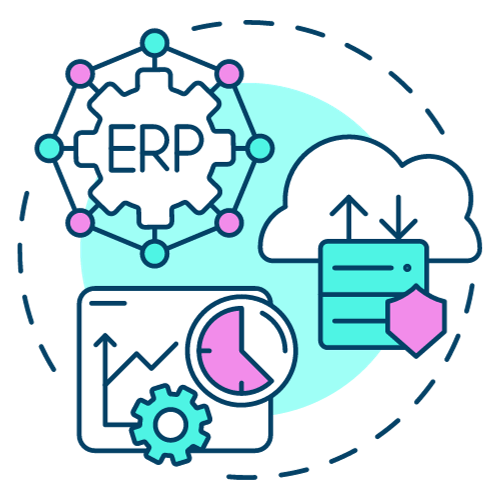In today’s fast-paced business landscape, Customer Relationship Management (CRM) systems have become indispensable tools for managing customer interactions and driving growth. However, the needs of small businesses differ significantly from those of large enterprises when it comes to CRM. This article delves into the distinctions between CRM solutions tailored for small businesses and those designed for enterprise-level organizations.

Small Business CRM Solutions
Small business CRM refers to customer relationship management systems specifically designed to meet the unique requirements and constraints of small-scale enterprises. These solutions are characterized by their scalability, cost-effectiveness, and ease of implementation.
Key Features of Small Business CRM
- Contact Management: Efficiently organize and manage customer information.
- Sales Pipeline Tracking: Monitor sales progress and opportunities.
- Task and Activity Management: Streamline task assignments and scheduling.
- Email Marketing Integration: Seamlessly integrate with email marketing platforms.
- Reporting and Analytics: Generate insights for informed decision-making.
Advantages of Small Business CRM
- Cost-Effectiveness
Small businesses often have budgetary constraints. CRM solutions tailored for them are affordable, ensuring that resources are allocated efficiently.
- Scalability
As small businesses grow, their CRM needs evolve. Scalable solutions allow for seamless expansion without significant disruptions.
- User-Friendly Interface
Intuitive interfaces make it easier for small business owners and their teams to adopt and utilize the CRM effectively.
Enterprise-Level CRM Solutions
Small business CRM refers to customer relationship management system for large businesses that have multiple departments or a complex CRM process.
Characteristics of Enterprise CRM
Enterprise-level CRM solutions are engineered to handle the complexities of large organizations with extensive customer bases, multiple departments, and intricate workflows.
Advanced Features of Enterprise CRM
- Multi-Channel Integration: Integrate with various communication channels.
- Customization and Flexibility: Tailor the CRM to specific business processes.
- AI-Powered Insights: Leverage artificial intelligence for predictive analytics.
- Workflow Automation: Automate repetitive tasks for increased efficiency.
- Comprehensive Security Measures: Ensure data protection and compliance.
Benefits of Enterprise CRM
- Enhanced Customer Segmentation
Large enterprises deal with diverse customer segments. Enterprise CRM enables precise targeting and personalized communication.
- Streamlined Inter-Departmental Communication
In complex organizational structures, effective communication is paramount. Enterprise CRM fosters seamless information flow across departments.
- Robust Data Security and Compliance
Enterprise-level CRM systems incorporate advanced security protocols and compliance measures to safeguard sensitive information.
Making the Right Choice
When selecting a CRM solution, it’s crucial to align the system’s capabilities with the specific needs and size of the business. Small businesses thrive with CRM platforms that offer cost-effectiveness and scalability, while enterprises benefit from the advanced features and security measures of specialized enterprise-level solutions.
Conclusion
In the realm of CRM, one size does not fit all. Small businesses and enterprises have distinct needs, and CRM solutions should be chosen accordingly. Understanding the features and benefits of each type allows businesses to make informed decisions that will drive success and growth.
FAQs
1. Is it possible to switch from a small business CRM to an enterprise-level CRM as my business grows?
Absolutely. Many CRM providers offer seamless migration paths to accommodate business expansion.
2. What are some common challenges faced when implementing CRM in a small business?
Small businesses may face challenges in data migration, user adoption, and customization to suit specific workflows.
3. Can a large enterprise benefit from using a small business CRM?
While possible, it’s recommended for enterprises to invest in specialized CRM solutions to meet their complex requirements effectively.
4. How can I ensure data security in an enterprise-level CRM?
Enterprise CRM systems employ advanced encryption, access controls, and compliance measures to ensure data security.
5. Are there industry-specific CRM solutions available for both small businesses and enterprises?
Yes, many CRM providers offer industry-specific solutions tailored to the unique needs of various sectors.

